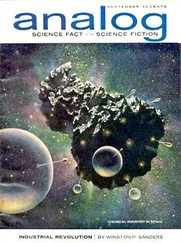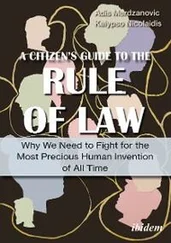The British finally gathered their forces to press their attack on Port Stanley, supported by naval gunfire and artillery. The Argentine forces, lacking a major air force or navy to evacuate them, were surrounded but continued to perform wonders of dexterity with their Exocets, killing thirteen British on the HMS Glamorgan by launching one of the fifteen-foot missiles from the back of a truck. They also bombed the British troops at night with their British-made Canberra light bombers.
The British, undaunted by these setbacks and confident of their legendary ability to turn disasters into rousing victories, pressed home their attacks on the hilly outlying areas of Port Stanley on the nights of June 11 and 12.
The battles for Mount Harriet and Two Sisters were tough little fights that took naval gunfire and direct assaults to dislodge the Argentines from well-defended positions behind minefields. The Battle of Mount Longdon was the bloodiest with twenty-three British killed and forty-three wounded. The Argentines lost thirty-one and more than one hundred wounded in this fight.
The next night, the final two battles were fought for the hills directly overlooking Stanley. The Argentine defenders finally took flight but only after facing a British bayonet charge. The bulk of the Argentine conscripts, still cold and hungry from exposure, nearly 10,000 in number, defied Galtieri’s order to fight and surrendered en masse on June 14 without engaging the British at all. The Falklands were British once more.
Back in Britain, everyone loved Maggie. The victory propelled the Iron Lady to new heights of power and popularity. British troops paraded through the streets of London as victors for the first time since the end of World War II. The military in Britain received the respect from the population that it had not seen in decades. The victory provided a muchneeded shot of optimism into the entire country, and Thatcher rode the victory to a huge Conservative Party majority in Parliament and nearly a decade as prime minister.
The defeat hit the Argentines hard. Little news of the impending defeat reached the public, and the surrender came as a blow to the country’s inflamed psyche. The same crowds that had cheered Galtieri now turned on him.
The military failure proved the undoing of the junta and Galtieri. The Argentines suffered 700 dead and 1,300 wounded in their bid to fight a major leaguer. The senseless waste of life and the ignominious surrender signaled the total failure of the junta in a way that the dirty war had failed to do and energized the cowed Argentine citizens into finally standing up to the junta.
Strikes and demonstrations ousted Galtieri as president on June 17 when his fellow generals voted him out. This led to the end of the junta and the country’s descent into democracy. Elections were held in 1983. Eventually Galtieri was tried for his role in the junta’s crimes and sent to prison in 1986. He died in 2003.
As for the people of the Falklands, their rocky islands finally became a tourist attraction for Britons willing to travel to the ends of the earth for a faint taste of fading glory. In 1983 Falkland Islanders were restored to full British citizenship, and there have been no serious discussions between Argentina and Britain over sovereignty of the islands. A large garrison protects the islands from any further outbreak of Argentine macho.
FIFTEEN.
THE U.S. INVASION OF GRENADA:1983
In 1980, the American people elected Ronald Reagan president.
He was elected partly based on his promise of making America proud again after the long nightmare of the Vietnam War and the humiliation of the 444-day hostage drama in Iran. A former actor fondly remembered as playing a straight man to a chimp, Reagan felt empowered to accomplish his mission by attacking the Communists wherever they popped up using whatever means he could muster. He was busy.
Reagan’s dream required a vastly expanded military. He spent billions to add ships, bombers, tanks, and missiles to the U.S. arsenal. Armed with these new toys, the military leaders could hardly wait to try them out for real on a “deserving” country.
Meanwhile in Grenada, a tiny island at the bottom of the Caribbean near South America, its prime minister Maurice Bishop, under the banner of his “New Jewel Movement,” was running the palm-tree-lined country with a Communist government so small and secretive that very few Grenadan citizens realized it was actually Communist. Interestingly, Bishop grabbed power in a coup against the kooky president Eric Gairy while Gairy was in New York trying to convince the UN to hold a conference on aliens. Bishop’s main pledge project for the worldwide Communist fraternity became shoehorning a large airport into a corner of the hilly little island with the help of Cuban engineers. It could be used for tourist jets or — more ominously — military planes.
To the rabid anti-Communists in Reagan’s administration and the Pentagon, it seemed obvious that the ten-thousand-foot runway was the first step by a brazen cadre of revolutionaries intent on turning the small island into a hub of revolution in the Caribbean. Nothing was done, however, until Bernard Coard, the number-two man in the island’s micro-Marxist Party, felt that Bishop was somehow betraying the revolution by not letting him be number one. An American-educated economist who in reality was a crypto-Stalinist, Coard strongly agreed with himself that to further the revolution in textbook KGB style, Bishop should be lined up against a wall and machine-gunned.
The rabidly anti-Communist American government, eager to crush the tiny Grenadan threat and win a clear-cut victory with their new, shiny weapons, realized that hundreds of American medical students lived at Grenada’s St. George’s medical school, only a few hundred yards from the dreaded runway’s edge. In the revitalized military, the United States had the diamond-hard might to get these possibly threatened young men and women, along with their hematology textbooks, safely home. Once Coard shot Bishop and took over, Reagan’s anti-Commie crusaders fueled up the jets for a quick weekend invasion in the Caribbean.
No one wanted to miss the fun.
Ronald Reagan— U.S. president, ex-movie star, anti-Communist who revived jingoistic military operation code names.
Skinny — Never let an invasion spoil a good golf game.
Props — Invaded one of Margaret Thatcher’s commonwealth countries without her permission.
Pros — Once his aides advised him of a decision he should make, he stood behind it 100 percent.
Cons — Often didn’t remember what his advisors had decided for him the day before.
Oliver “Ollie” North— Marine colonel on National Security Council staff and proto anti-Communist.
Skinny — Absolutely never tempted to skip an invasion to play golf.
Props — Hired leggy paper-shredder Fawn Hall as his right-hand man.
Pros — Pledged to defend the Constitution of the United States.
Cons — Believed the Constitution allowed him to do whatever he wanted.
Bernard Coard— U.S.-educated treasury secretary of Grenada’s micro-Marxist party who promoted himself to island ruler by killing his predecessor, Maurice Bishop.
Skinny — Practiced a revolutionary theory of “lead the revolution by hiding” when the invasion began.
Props — Very organized, kept his folders stacked neatly on his desk.
Pros — Thought Communist revolution and industrialism would provide a better future for Grenada than tourism.
Читать дальше












